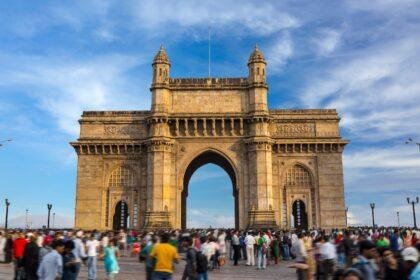British Prime Minister Keir Starmer Embarks on Strategic Visit to India
Published: October 7, 2025
British Prime Minister Keir Starmer is set to embark on a pivotal two-day visit to India, commencing Wednesday. Accompanied by over a hundred leaders from various sectors, including business, culture, and academia, Starmer aims to bolster the recently signed free trade agreement between the two nations. This visit marks a significant step in enhancing bilateral relations and economic cooperation.
A Landmark Trade Agreement
In July, during Indian Prime Minister Narendra Modi’s visit to the UK, both countries finalized a free trade agreement that promises to reshape their economic landscape. The deal, which aims to reduce tariffs on a wide array of goods-from textiles to whisky and automobiles-also seeks to enhance market access for businesses on both sides. The negotiations, which spanned three years and faced numerous interruptions, were expedited in response to the global tariff upheaval initiated by former U.S. President Donald Trump.
The agreement is projected to increase bilateral trade by £25.5 billion (approximately $34 billion) by 2040, a figure that the UK government has emphasized as a minimum target rather than a maximum ambition. Starmer’s delegation includes executives from major corporations such as BP, Rolls-Royce, and BT, all of whom are keen to leverage this significant post-Brexit trade opportunity.
Economic Growth and Strategic Partnerships
Starmer has articulated a vision for the trade deal, describing it as “not just a piece of paper, but a launchpad for growth.” He highlighted India’s potential to become the world’s third-largest economy by 2028, suggesting that the opportunities for British businesses in India are “unparalleled.” This perspective aligns with Starmer’s broader economic strategy, which aims to reverse declining poll numbers and stimulate growth ahead of a challenging fiscal budget expected in November.
The Prime Minister’s itinerary includes bilateral discussions with Modi on Thursday, with both leaders expressing a commitment to ratifying the trade deal and implementing it within the next year. This urgency reflects the growing recognition of India as a key player in the global economy, particularly in light of shifting geopolitical dynamics.
Enhancing Connectivity
In addition to trade discussions, the visit will also focus on enhancing connectivity between the two nations. British Airways, part of International Airlines Group (IAG), has announced plans to introduce a third daily flight from London’s Heathrow Airport to Delhi by 2026. Similarly, Manchester Airport is set to launch a new route to Delhi, operated by IndiGo, further facilitating travel and trade.
The Whisky Industry’s Stake
A notable aspect of the trade agreement is its impact on the UK whisky industry. The deal is expected to significantly reduce tariffs on whisky exports to India, cutting them from 150% to 75%, with a gradual reduction to 40% over the next decade. This change has been eagerly anticipated by industry stakeholders, including Diageo and the Scotch Whisky Association, who have been lobbying the UK government for tariff relief, particularly in light of the absence of a similar agreement with the United States.
Historical Context and Future Implications
The UK-India trade relationship has deep historical roots, dating back to the colonial era. However, the modern context of this relationship is shaped by the complexities of globalization and the shifting economic power dynamics in Asia. As both nations navigate the post-Brexit landscape, the trade agreement represents a strategic pivot for the UK, seeking to establish stronger ties with emerging markets.
The significance of this visit extends beyond mere economic metrics; it symbolizes a renewed commitment to international collaboration in an increasingly interconnected world. As countries grapple with the challenges posed by climate change, technological advancements, and geopolitical tensions, partnerships like the one between the UK and India will be crucial in addressing these global issues.
Conclusion
Keir Starmer’s visit to India is not just a diplomatic formality; it is a strategic initiative aimed at fostering economic growth and strengthening bilateral ties. With a focus on trade, connectivity, and industry collaboration, this visit could pave the way for a new chapter in UK-India relations. As both nations look to the future, the outcomes of this engagement will likely have lasting implications for their economies and global standing.









